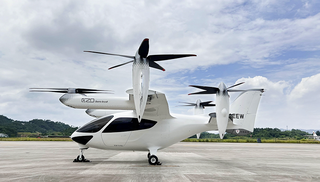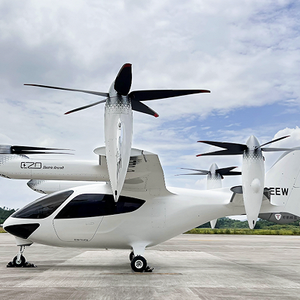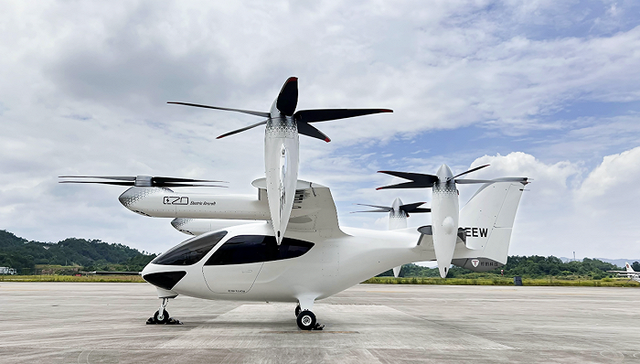By LU Keyan
Air taxis might not remain confined to science fiction for long. In October of this year, residents of Shenzhen and Zhuhai in Guangdong province might be able to hail one.
Electric Vertical Take-off and Landing (eVTOL) is considered by many as a real-world flying car. Globally, companies involved in eVTOL come in three main groups: airlines, automakers, and startups.
Tcab Tech, the company set to conduct test flights this October falls into the third category.
Similarly to helicopters, the vehicle can perform vertical take-offs and landings, yet boasts advantages that helicopters cannot match. Helicopters come with high operational costs and loud noise which eVTOLs don't.

In June of this year, Tcab unveiled a prototype. Its cruising speed is up to 260 kilometers per hour with a maximum speed of 320 kilometers per hour. It can carry one pilot and four passengers, cruising at altitudes ranging from 300 to 600 meters, with a maximum flight altitude of 3,000 meters. If eventually scaled for widespread operation, costs could be comparable to taxis, which is much lower than the several thousand yuan hourly cost of helicopters.
Although the eVTOL concept comes from overseas, Chinese companies are technologically on par with foreign counterparts and have unique strengths in battery technology. Numerous city clusters provide a commercial basis. In October of this year, the first eVTOL flights in Shenzhen and Zhuhai will open up opportunities in tourism, cargo transport and passenger services.
Commercialization will not be an easy feat. Passing safety inspections which do not even exist yet and obtaining some kind of airworthiness certification remains a challenge.
In fact, no eVTOL manufacturer currently holds such certification. It's not even clear if such exists. However, both investors and governments are interested and regulation may move quite quickly.





